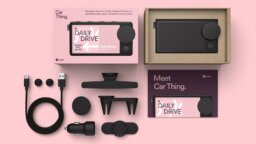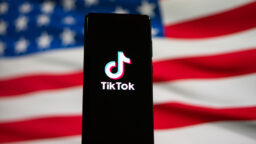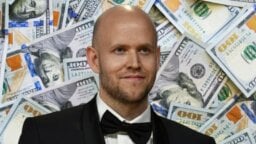Zane Lowe must be getting a bit sick of everyone calling him a ‘curator’. Even Apple are doing it, and it’s never nice knowing your new employers have picked your office nickname before your first day.
It’s true that the New Zealander clearly harbours a heck of a lot of knowledge – loaded with a heck of a lot of enthusiasm – about the labyrinthine connections between historical and modern pioneers of hip-hop, rock and electronic music alike.
But what’s possibly been a little overlooked by Apple soothsayers in the past week is the fact that the DJ is also an expert generator of personable, artist-related content.
In other words, Zane Lowe is not merely a curator – he is a creator. He makes entertaining stuff, with unique access, about the sort of artists that fans adore.
It’s this asset that, to my mind, makes his addition to Cupertino’s payroll particularly telling. It transforms Lowe into key piece of artillery for Apple – one which the tech giant will strategically deploy as it battles the great ‘freemium wars’ of 2015.
What are the freemium wars? Well, they’re raging as I type. And yesterday, they might just have claimed their first high-profile casualty.
“It is possibly no fluke that lucian grainge’s Code:media speech, in which he suggested ad-funded could not ‘sustain’ the music biz, came days before Rob Wells’ exit from UMG”
Rob Wells’ exit from UMG was shock news. Here’s a digital music maven whose intellect is widely revered, and whose decency and professionalism appears to be universally (and Universally) respected.
(As is his frank-talking. As one close confidant told MBW after our story about Wells’ departure broke last night: “I’ve never heard swearing in a meeting room like it ever before.”)
Why would Lucian Grainge allow Wells, a near-15-year veteran of Universal – a man he trusts, who commands the deference of digital content’s biggest players – to slip through his fingers?
Very possibly because within Universal, and to a lesser extent within Sony, the tide is turning on rights-holder tolerance for ad-supported music. And it’s turning strongly.
Was Taylor Swift’s decision to yank her music off free streaming services last year more to do with inflating Big Machine’s asking price than whether or not she truly believed in the value of art?
Who knows. To a degree, it doesn’t matter.
Her headline-grabbing disappearing act was the clap of thunder that set loose a tornado: major labels are now threatening to pull their catalogues from free services, including Spotify‘s, by the time the year is out – as Spotify stubbornly refuses to allow top-drawer artists to release premium-only content on its service.
One UMG high-up recently put the sentimental version of Grainge’s argument to me over lunch: “You know, you can listen to Michael Jackson’s complete catalogue, all day, every day, for the rest of your life and never pay a penny. I mean, that can’t be right, can it?”
Wells, by contrast, has shown himself to have more long-term faith in Daniel Ek‘s masterplan. Two years ago, he went so far as to dismiss the idea that Spotify cannibalises albums sales as “absolutely bogus”.
Evidently, Grainge no longer holds quite the same faithfulness. Ek can protest that freemium drives subscriptions all he likes: the fact is, Grainge and his bonus-hitting team will be painfully aware that despite making up 45 million of Spotify’s 60 million customers, ad-funded users contributed just 10% of the company’s revenues in FY 2013.
It is perhaps no fluke that Grainge’s Code:Media Q&A in California last week – in which he publicly concluded that an ad-funded model “couldn’t sustain” the music business – came just days before Wells’ surprising departure from UMG.
I’m sure Wells was still giving his boss typically smart answers to the end – but perhaps they weren’t the smart answers Grainge wanted to hear.
A man who might be offering Grainge those answers is Jimmy Iovine: Universal’s former Interscope boss turned official iTunes cheerleader.
If UMG’s head honcho was open to the message that ad-funded music wasn’t sufficiently rewarding before, now he’s got Iovine warbling it at him like a corporate show tune – 800m can-canning credit cards hitching up their skirts as the Apple man razzle dazzles.
From what we know of iTunes’ new music service, you can bet your bottom dollar (or Apple’s $180bn in cash reserves, whichever takes your fancy) that the a la carte streaming element of the ‘new iTunes’ won’t be free. Like Beats before it, it will almost certainly offer a limited free trial period and then demand a monthly subscription – probably in the region of $7.99.
This is why the story can’t end here: with Lucian Grainge, Jimmy Iovine and the world’s biggest artists riding off into the sunset holding big, swinging bags of cash.
“if grainge was open to the idea that ad-funded wasn’t worth it before, now he’s got jimmy iovine singing it like a show tune – with 800m credit cards can-canning behind him”
Let’s say, for argument’s sake, that Daniel Ek capitulates, and allows some superstar artists to move their material to Spotify’s premium-only tier. What then?
Well, Apple gets what it wants: an industry-wide precedent that some music is worth more than other music, creating an exclusivity culture of which it can take global advantage.
But consumers will still have YouTube. And the bedrock that made Norway’s ability to ‘eliminate piracy’ possible – ie. all legal music at the touch of a button – will be removed.
Torrent sites will still exist.
Spotify and YouTube have helped ensure that free music consumption is now solidly bolted through worldwide culture. So Apple has a head-bending riddle on its hands: how can you convince music fans to attach a value to something that they’re accustomed to getting for free?
The answer is as simple as it is unfathomable: artists.
Taylor Swift fans love Taylor Swift more than iPhones. So create more cool, exclusive stuff that centres on Taylor Swift.
In fact, create an environment where Taylor Swift fans – or Kanye West fans or One Direction fans or Eminem fans – can convene to be regularly drip-fed exclusive morsels.
An interactive fan-club – within a music service that brings out the fan in you.
The idea that this would eke out more revenue-per-user isn’t as far-fetched as it might seem. For those convinced by empirical data, clever people have set out how it could work before.
For those more convinced by anecdotal meandering, here you go: all around the UK, Noel Gallagher is plugging his new record. You have to wonder how many music magazine sales Gallagher and his sharp tongue alone generates in Britain: he seems to be on the cover of them all twice or three times a year.
Why not release Noel Gallagher’s Official Magazine and be done with it? Even better, do it digitally, with no printing or manufacturing outlay?
That’s where Apple can sucker-punch freemium: by creating a low-ball monthly subscription structure for its mainstream iTunes audience, while up-selling mega-fans into artist-specific silos.
Zane Lowe is the first piece of this puzzle. There is no-one in America – save, perhaps Howard Stern – who gets interviews, and who ‘gets’ artists, quite like him.
Here’s some trivia about Lowe that speaks volumes about his kinship with creatives:
- He’s a Grammy-nominated producer;
- His band, Breaks Co-Op, have won even more awards for music in his home country than Lowe has won for radio in the UK;
- He co-wrote – presumably with a 50% cut – Sam Smith’s Restart, one of the standout tracks on the supernova British artist’s debut album.
To a degree, all of those facts are red herrings. But they’re also cherries on top of a mountain of proof that whatever your individual reaction to Lowe’s broadcasting style, huge international artists like him and empathise with him. (Watch his in-depth interviews with Kanye West or Rick Rubin: he’s a master of walking the tightrope between earnest muso Q&A and ‘OMG lol’ quote-athons.)
But Apple obviously needs more than Zane Lowe to conquer freemium’s appeal.
It will need buy-in from the world’s premier artists; artists willing to give their best to iTunes, in return for a just reward.
“To win the hearts of artists, apple will have to dangle its unrepentant willingness to press ‘push’ on content to its devices – just like it did for U2”
To obtain this permission, Apple will need to dangle the stuff Bono knows about better than anyone: its colossal marketing clout, its consumer data analytics and its willingness to press ‘push’ on content to its devices.
Especially that last one.
Apple’s artist pitch is really very simple: Taylor Swift’s 1989 has sold around 5 million copies so far. That’s good. There are 500 million iPhones being used around the globe right now. That’s better.
And then, finally, as a pièce de résistance for fans still tempted by The Pirate Bay’s cost-free lair, how about this: artist exclusives that extend outside their phones and into the live arena.
iTunes Festival continues to grow. Apple has huge affinity with music fans. Yet the company is yet to really take any kind of chunk out of music’s richest sector and its resultant recorded content.
In some form, that will surely have to change over the next year.
To have any chance of making this work, of course, Apple is going to need to kick things off with one hell of an artist.
One whose return will send people nuts the world over. One who has shown Taylor-like willing to refuse to give their music away for free in the past.
And, ideally, one whose long-awaited new record is out the wrong side of summer – coinciding nicely with Apple’s new service and the return of iTunes Festival to London.
Any ideas?
Nah. Me neither.Music Business Worldwide




